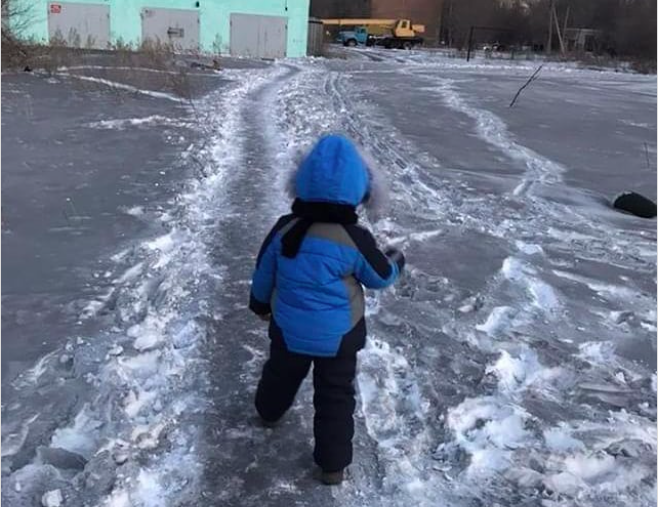 January snowfall is nothing unusual during heavy Kazakhstan winters. But this year, when snow came to the northeast city of Temirtau, it was black.
January snowfall is nothing unusual during heavy Kazakhstan winters. But this year, when snow came to the northeast city of Temirtau, it was black.
“The entire city is covered in dust,” one local wrote on Instagram, under a video showing the residential playground in her neighborhood half submerged in shades of gray powder. “Where do you look,” she wrote, addressing the government. “Shame!!!”
It was one of a torrent of outraged reactions to the postapocalyptic weather in one of Kazakhstan’s most heavily industrialized towns, located 140 miles from the capital of Astana. Residents were alarmed by the sinister hue of the snow, concerned that the discoloration was a clear show of the level of pollution in their city.
An Instagram page dedicated to the city posted an image of the coal-colored piles of snow, with the phrase “We are being poisoned” scratched into the dark surface. Those words have been repeated in numerous comments by residents, many of which shared images of their children venturing outside to play in the contaminated snow.
At the center of Kazakhstan's iron industry, Temirtau has numerous industrial processing facilities, including the country's biggest steel-production plant, which is owned by ArcelorMittal Temirtau. Multiple locals pointed a finger at the company, and in a statement to the BBC, ArcelorMittal admitted that its facility may have played a decisive role in the black snow phenomenon.
In a statement, it blamed the lack of wind last month for creating conditions where "emissions do not dissipate, and this most likely caused the change of the snow's color."
City residents drafted a petition addressed to the head of the Association of Ecological Organisations of Kazakhstan, Aliya Nazarbayeva, who also happens to be the youngest daughter of President Nursultan Nazarbayev.
"The snow acts as a litmus test, revealing the frightening scale of these harmful emissions. All that dust from the plant ends up in our lungs, and in the lungs of our kids," the petition states, according to local news agency AKI Press. Government officials and ecologists are investigating the incident as a result; no official verdict on who is to blame has been announced.
Newsweek.Com, 01.12.2018




